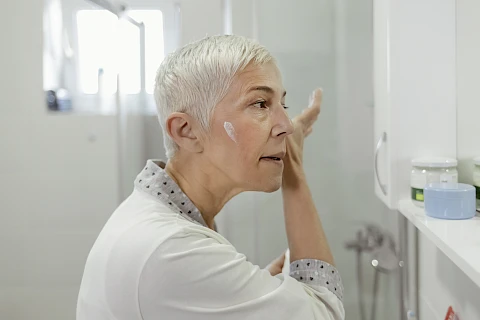
July is UV Safety Month, a time to raise awareness about protecting ourselves from the sun's harmful ultraviolet (UV) rays. As seniors age, their skin becomes more susceptible to sun damage, making this particularly crucial. As caregivers, it's our responsibility to ensure that the seniors in our care are adequately protected from excessive sun exposure.
Sun Damage in Seniors
As we age, our skin becomes thinner and more fragile, making it more susceptible to sun damage. Common signs of sun damage include wrinkles, age spots, and uneven skin tone. More importantly, excessive sun exposure can lead to serious health risks, such as skin cancer, heat exhaustion, and dehydration.
Best Practices for Sun Protection
To protect seniors from sun damage, it's essential to follow these best practices:
Choosing the Right Sunscreen
You must look for sunscreen with an SPF of at least 30. Ensure the sunscreen offers broad-spectrum protection against UVA and UVB rays that can cause excessive damage to the skin. You should choose a water-resistant formula, especially for outdoor activities.
Proper Sunscreen Application
Applying a generous amount of sunscreen, about one ounce (a shot glass full) for the entire body, is essential for the protection your senior loved one needs. Reapply sunscreen every two hours or immediately after swimming or excessive sweating.
Protective Clothing and Accessories
It's a good idea to encourage seniors to wear wide-brimmed hats to protect their face, neck, and ears. Opt for long-sleeved shirts and pants made from lightweight, breathable fabrics. You want to ensure seniors wear sunglasses with UV protection to shield their eyes.
Seeking Shade During Peak Sun Hours
Limit outdoor activities between 10 a.m. and 4 p.m., when the sun's rays are the strongest. Encouraging seniors to seek shade under trees, umbrellas, or covered patios is important.
Importance of Regular Skin Check-Ups
Regular skin check-ups are crucial for identifying potential skin cancer early when it's most treatable. Seniors should schedule annual skin examinations with their dermatologist or primary care physician. During the check-up, the doctor will thoroughly inspect the skin for any suspicious moles, spots, or patches.
Caregiver Tips for Ensuring Senior Sun Safety
As caregivers, we can take proactive steps to ensure senior sun safety:
- Incorporate sun protection into the daily routine, such as applying sunscreen before going outside.
- Encourage seniors to stay hydrated by drinking plenty of water throughout the day.
- Plan outdoor activities during safer times, such as early morning or late afternoon.
- Lead by example and practice sun safety ourselves.
Senior Helpers Ellis County Helps Seniors Stay Safe in the Sun
Protecting seniors from sun damage is a crucial aspect of caregiving. By following best practices for sun protection, encouraging regular skin check-ups, and incorporating sun safety into daily routines, we can help seniors enjoy the outdoors while minimizing their risk of sun damage. Contact Senior Helpers Ellis County today for in-home care services in Waxahachie, Ennis, Mansfield, Midlothian, and throughout Ellis County. Our dedicated caregivers are committed to ensuring the health and well-being of your loved ones.